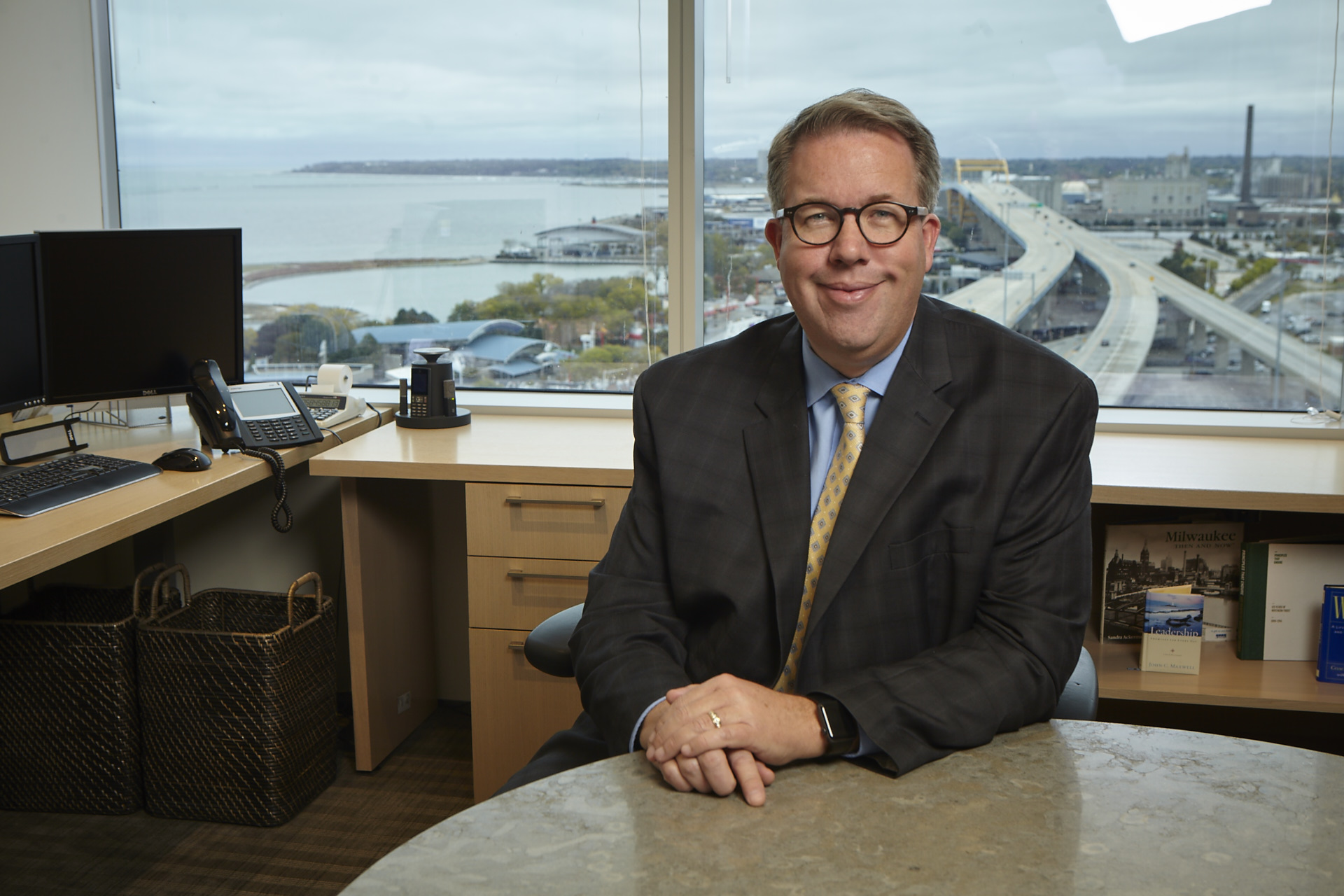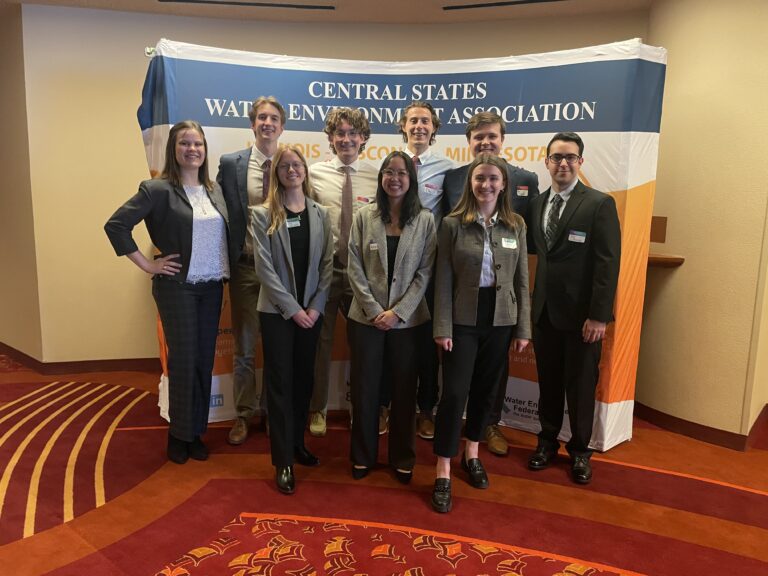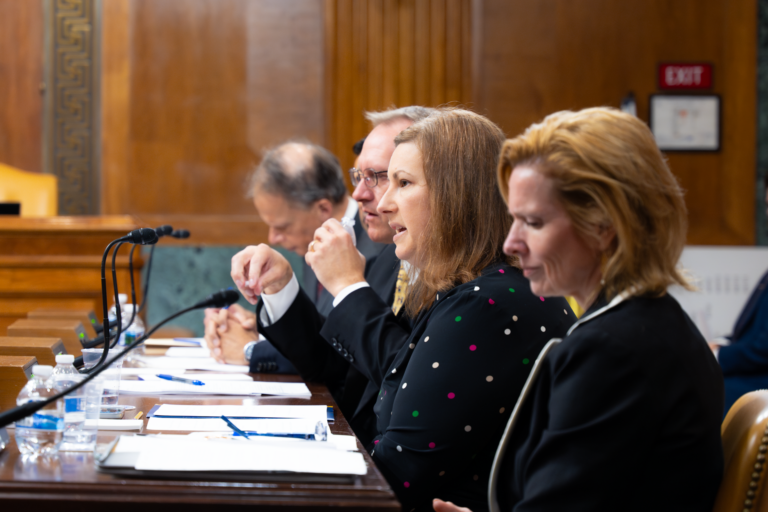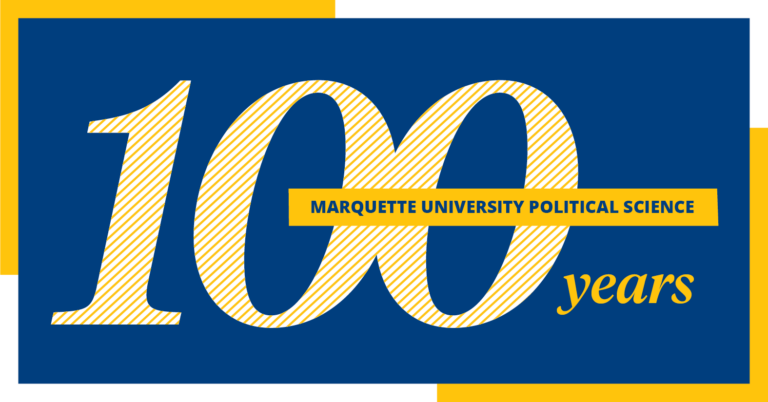David Bauer is a three-time Marquette Business community member.
He earned his bachelor’s degree from the College of Business Administration in 1991 and an Executive MBA from the Graduate School of Management in 2005. Now he’s an instructor of practice in finance in that same EMBA program.
“Most people assume that being a three-times-over Marquette person involves going to Marquette High School, but I tell them I did it by coming back to teach,” Bauer says.
Students in Marquette’s EMBA program, which placed 26th in the country in the latest Poets & Quants rankings, take Bauer’s corporate finance class as part of the rigorous, 17-month program. When he’s not teaching, Bauer is the chief investment officer at Lubar & Co., a local family office and private equity firm.
What do you remember from your time as an undergraduate student?
That was just a wonderful experience. The quality of the teaching and the education was outstanding.
When I graduated Marquette, I started at Arthur Andersen, which was the largest accounting firm in the state at that time, in their auditing department, and I feel like my education prepared me very well for that.
How did you end up teaching in the EMBA program?
About a year after I graduated with my EMBA degree, Marquette reached out and said that I would be a good fit to teach corporate finance. I asked them why they were looking to me to do this, and the answer was that they wanted someone who had practical experience, who was doing corporate finance work every day and could share with students how it really works.
I told them, “That’s great, because that’s the only way I would know how to teach it.” I came back to teach in the executive MBA program and I’m just about to receive my 15-year service award.
What was it about Marquette that made you enjoy your initial experience here so much?
The people. It was all about the people. The instructors, their caring for the students, the personal relationships, the one-on-one interaction, is what made it special. I stay in touch with some of my former undergraduate instructors to this day. Those same exact things make it special today; that really hasn’t changed.
Name one thing Marquette students have today that you wish you had as a student.
I wish I had the technology students have available these days. The ease and efficiency that they have available to do research, being able to connect to the classroom virtually if they need to — we couldn’t do that before.
We have discussion groups that we use in the EMBA program, and I will post questions to the students outside of class time. There will be a dialogue among the students where they share ideas and examples of their own. This depth of learning would never have happened before. It’s because of the technology but also the creative use of that technology to supplement the student’s educational experience.
Talk a little bit about the class you now teach and what your desired learning outcomes are.
I’m teaching corporate finance, which is focused on mergers and acquisitions and capital investments. A wrong decision in this area can lead to failures in businesses, so I want students to be educated so they can make better decisions in their careers. My desired outcome is to have professionals in our community who are excellent at what they do, and I try to bring in real-life examples that I’ve gone through.
Your students also won the Association of Corporate Growth (ACG) Cup; talk a little about that.
It’s an inter-school competition organized by the ACG, which is an organization of professional corporate development and mergers and acquisition business leaders. I bring in outside professionals to mentor our class teams on how to analyze an acquisition and put together financial models. The teams then compete against each other in class and the best team receives a cash award for winning.
The winner of that competition goes on to compete against UW-Milwaukee and UW-Madison. Marquette won the most recent competition. The competition also includes networking with students of 50 or 60 M&A professionals
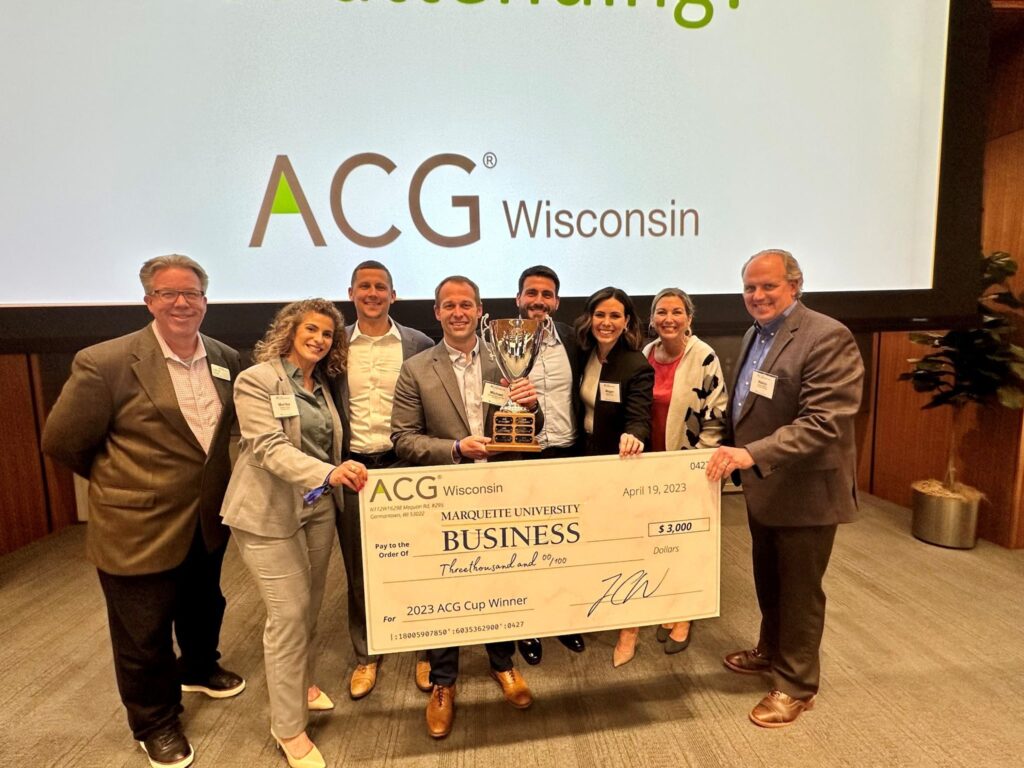
What is a trend in the corporate finance industry that you think needs to be accounted for when educating future leaders in that space?
The amount of data analytics that’s being used today will only accelerate in the future, and that’s incredibly important for students to know about. The amount of information you can gather within a business is at the highest point I’ve ever seen in my career. The real challenge is who can take that data and turn it into insights that can make an actionable difference in a company. Students need to be adept at doing that.
What is one trait that you think all great people in your line of work have in common?
The number one trait is to be inquisitive and always wanting to learn more. If that becomes a lifelong skill outside of the classroom, that’s going to be a key part of a student’s success. Always listening, asking questions, being open to new ideas — that’s what’s going to make them the most successful.
Why is it important for students to have teachers who are also practitioners?
Bringing real world experience means everything to students. That’s why people come to get an EMBA. They want to see how challenges are dealt with and how you interact with people and learn from past pitfalls when putting together an analysis.
Generally, students in the EMBA program are leaders in their organizations. They’re going to be part of making change in the future and that requires forward-looking thinking. Having someone that’s been through the experiences in the past that can share their experiences and decision making is invaluable.
How do you think students are different now than they were when you first started teaching?
Almost every year, the students keep getting better. I never expected that. The quality, the insight, the poise, the professionalism, the ability to think through tough questions; it just keeps climbing every year.
